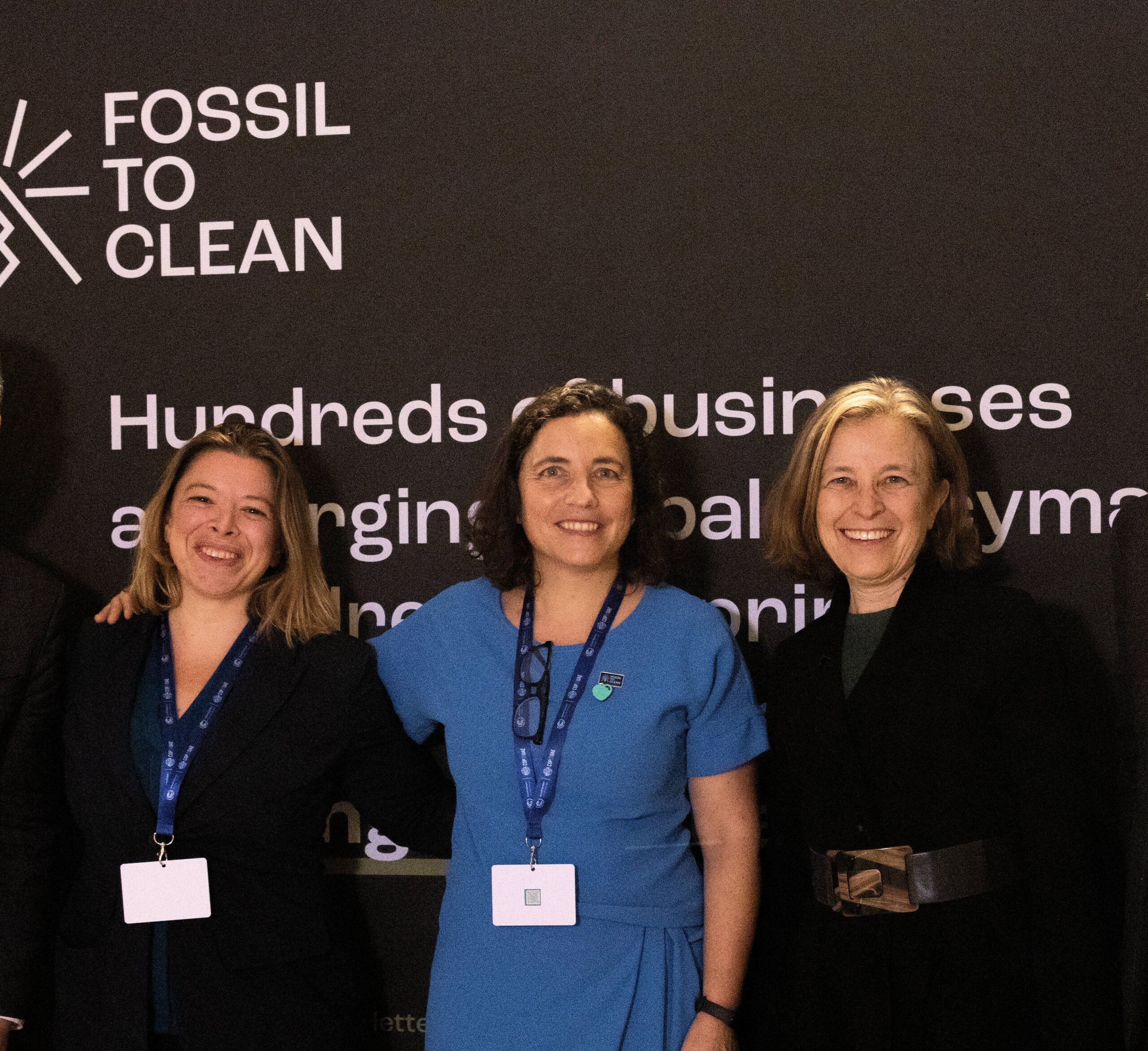Celebrating women in climate – yesterday, today and tomorrow
We Mean Business Coalition
It’s International Women’s Day (8 March) – the global day celebrating the social, political, economic and cultural achievements of women.
We Mean Business Coalition benefits from the expertise, experience and insight of many incredible women on our staff (67% of whom are women), on our board, through our network of partners, in the companies we work with – and, above all, in our CEO María Mendiluce. She has been named one of Reuters 20 trailblazing women, alongside our board member Halla Tómasdóttir of The B Team, Rachel Kyte of Voluntary Carbon Markets Integrity Initiative and other leading lights of our movement.
Today, therefore, we are taking a moment to celebrate all the women making a difference on climate. The women with a global profile calling for transformative action and making a path for others to follow. The female CSOs and sustainability managers showing up day after day to center climate in their companies. The women who are legislating, negotiating and advocating to put policies, targets and regulations in place to accelerate action. And all the female students, entrepreneurs and small business owners who will build the green economies and resilient communities of the future.
The rise of the female CSO
Chief Sustainability Officer is one C-suite role where gender parity has already been reached – with women like Google’s Kate Brandt, Amazon’s Kara Hurst, Unilever’s Rebecca Marmot and Lafarge Holcim’s Nollaig Forrest leading the way. Meanwhile, sustainability manager is the fastest-growing job on LinkedIn in some countries, with a majority of roles being filled by women – according to recent research from LinkedIn.
Women blazing a trail in other areas traditionally dominated by men include Maria Persson Gulda, CTO of H2 Green Steel and LanzaTech CEO Dr Jennifer Holmgren, who is playing an integral role in developing alternative jet fuels.
Yet, overall, women continue to be underrepresented on boards and in senior leadership positions. In her latest piece for Forbes, María Mendiluce writes of the implications of this imbalance for everyone. A plethora of research shows the improved climate-related performance of more gender-diverse boards and companies with a greater representation of women in leadership positions.
At the climate negotiations table
Gender diversity is crucial to successful negotiations, bringing with it better, bolder decisions that have been shown to last. Many of the key successes of the COP process were delivered by women leaders working closely with the male colleagues. Former UNFCCC chief Christiana Figueres and COP21 former French Climate Ambassador and Special Representative to COP21 Laurence Tubiana Laurence Tubiana, for instance, were at the helm when the landmark Paris Climate Agreement was struck.
Today, women such as Mia Mottley, Prime Minister of Barbados, are driving forward action to reform the international finance system. At a subnational level, mayors such as Yvonne Aki-Sawyer in Freetown and Anne Hidalgo in Paris – and as current and former chairs of our network partners C40 Cities – are delivering change and demonstrating to national governments what is possible.
However, in January COP29 hosts Azerbaijan announced an organizing committee that included no women. In response We Mean Business Coalition organised a letter signed by 88 women leaders from across business, civil society and science calling on them to reconsider. The absence or underrepresentation of women in the top team, we argued, would only serve to diminish the progress we need from these climate talks. In response, Azerbaijan added 12 women to the organizing committee.
As small business owners and founders
Small and medium-sized businesses make up 90% of companies globally, employ 70% of the world’s workforce, and contribute over 50% of the global GDP. The SME Climate Hub, under the leadership of our We Mean Business Coalition colleague, Pamela Jouven, which empowers SMEs to take climate action, is working with women around the world who are seizing new opportunities in the green economy and embedding climate action in their communities.
They include Namrata Aggarwal, founder of Vishisht Lifestyle, who has built an award-winning skincare business in India by specialising in natural and sustainable products. She believes the time to act is now: “Today, so many consumers are realising the urgency of opting for healthy and organic products. We’re in the middle of an immense opportunity for sustainable products, and Vishisht is catering to this need.”
Meanwhile, Linzi Gay, President of Clif Family Winery & Farm in the U.S. talks of how they are seeing the impacts of climate change firsthand: “As an agricultural company with wine as our primary product, we have seen the impacts… with changing weather and the increased number and intensity of wildfires,” notes Gay.
And into the future green economy
Around the world, in every sector and industry, new climate related jobs are being created and many are being filled with exceptionally talented women at every level. To be successful, we need a just and equitable transition that engages the workforce and local communities, of all genders.
We all need to work together – as allies, mentors and colleagues – by speaking up when needed, removing barriers and making space for women and girls to lead, for everyone’s sake.

